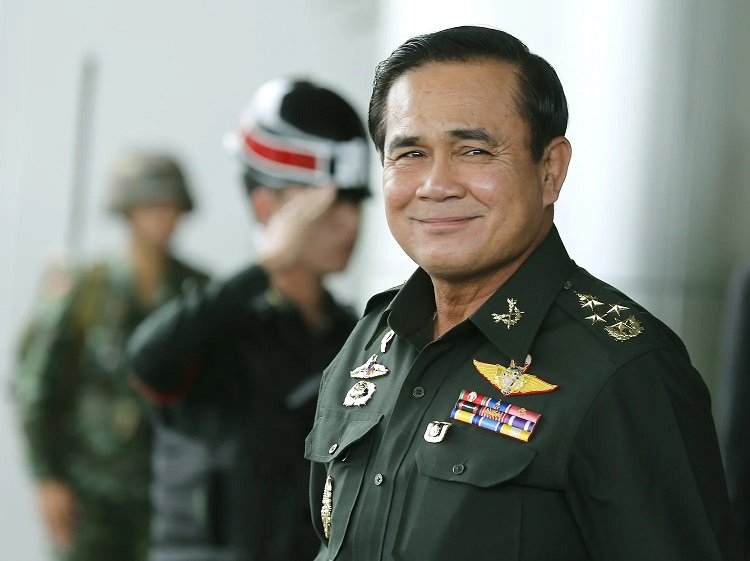Questions over whether Prime Minister Prayut Chan-o-cha can legally remain in office after August 24 have resurfaced as the date approaches.
On that date, Gen Prayut will have been in the post for eight years, the legal limit set by the Constitution.
What the Constitution says
Unlike all previous editions, the current Thai charter stipulates a time limit for the PM’s tenure. Article 158 states that: “The prime minister shall not hold office for more than eight years in total, whether or not consecutively. However, this shall not include the period during which the prime minister carries out duties after vacating the office.”
When to start counting?
Many observers, including Prayut’s critics, insist the eight-year period started when he first assumed the premiership on August 24, 2014 – following the military coup he led in May that year.
However, his supporters and others say his tenure began when the current Constitution came into force on April 6, 2017. A third group view that it should be counted from when Prayut assumed the premiership on June 9, 2019, following the general election in March that year.
Arguments by both sides
Proponents of the August 24 deadline argue that the eight-year time limit should have a retroactive effect, as the constitutional provision is designed to prevent a “monopoly of power”. Allowing prime ministers to stay in office for longer than this period makes them unaccountable and is therefore anti-democratic, they say.
They maintain that what matters is the spirit of the Constitution, whose unprecedented provision is intended to prevent any prime minister from entrenching their power.
Meanwhile, the opponents view that the eight-year limit should not have a retroactive effect on PM Prayut. They insist that the limit should be counted from when the charter came into force – which means Prayut can serve for another term as prime minister until April 2025.
Others, including Prayut’s most fervent supporters, argue that his legal term as prime minister actually lasts much longer than this. For them, his premiership under the current charter began on June 9, 2019 – so he has until mid-2027 to serve as the country’s leader if he wins another term.
Mounting pressure
Prayut is facing mounting pressure over the issue from opposition politicians and political activists. They are demanding that he step down before the constitutional “deadline” — when his tenure expires — or risk violating the country’s supreme law as enshrined in the charter.
The opposition camp, led by Pheu Thai Party, is expected to take its case to the Constitutional Court later this month as the PM and his government continue to dismiss talk of the eight-year limit. Pheu Thai will ask the court to rule on how long Prayut can stay in office, the party’s legal expert Chusak Sirinil said recently.
Last Sunday, a group of 99 academics, activists, and professionals upped the pressure on Prayut by launching a campaign calling on him to vacate his office before August 24, which they insist is the constitutional deadline for his end of term.
Critics are also calling on Prayut to set a precedent by stepping down soon, saying he lacks the legitimacy to remain in office beyond the legal time limit.
What next?
Deputy Prime Minister Wissanu Krea-ngam recently encouraged “anyone who has questions” regarding the tenure of the premiership to seek a Constitutional Court ruling, either before or after August 24.
He said the government would wait for people to ask the court to rule on the matter, as the administration would not seek a verdict itself.
If the court rules that Prayut’s term expires on August 24, his Cabinet will serve as a caretaker in power until Parliament chooses a new prime minister, according to Wissanu, who is in charge of the government’s legal affairs.
Wissanu said that Gen Prawit Wongsuwan, as the first deputy prime minister, would serve as the caretaker prime minister if Prayut was ordered to vacate his seat.
By Thai PBS World’s Political Desk




